Here's what I said at the time:
Anglicans are also urged to begin praying for the Pope during the intercessionary prayers in church services, and Catholics are asked also to pray publicly for the Archbishop of Canterbury. [Ok. This part I don't get. They acknowledge the Universal Primacy of the Pope and therefore it's right for Anglicans and Catholics to pray for him. But who the heck is the Archbishop of Canterbury? Why should Catholics pray for him? ]Good Master Joee Blogs has also commented on this document, focussing on the question of the validity of Anglican Orders which Pope Leo XIII had declared to be utterly null and void in Apostolicae Curae and which Cardinal Joseph Ratzinger (Now His HolinessPope Benedict XVI) had declared as settled Catholic teaching, to be held with the assent of Faith in the CDF's doctrinal commentary on Ad Tuendam Fidem, Pope John Paul II's Apostolic Letter.
He does not have jurisdiction and his 'primacy', even within his own 'communion' is restricted to his province of Canterbury and in England. He's just first among equals among the Anglican primates.
Do the Episcopalians pray for him? I'm don't think the Anglicans in the South East Asian province pray for him either.
Why the heck should the Catholics do that?
It violates canonical laws of commemorating one's own primate and bishop.
Joee's post has resulted in several comments along the lines of 'Why can't we just get along? We're sinners too!'.
An anonymous commenter has related this incident:
As for praying for Anglican bishops, a couple of weeks ago Bishop Kieran Conry of Arundel and Brighton did so at St John's Seminary Wonersh,saying during the canon of the Mass, "We pray for me your [he always omits "unworthy"] servant and for Christopher our brother Bishop". The CofE Bishop of Guildford was vested in the sanctuary.Bishop Kieran was applauded by another commenter, John.
[I]t is the Catholics who must realise the hurt that this kind of comment and exclusive attitude does to our brothers and sisters in our fellow churches. Do we really believe that only Catholics will get to Heaven? It is the Catholic church which must do the work to progress the cause of unity. And we MUST pray for each other publicly - all praise to Bishop Kieran!
Here's my response to John:
John, the Truth must be told in charity, but it must be told nonetheless.
This has nothing to do with who goes to Heaven. Actually Catholics do not take salvation for granted and we continue to pray for our dead years later, something that many Christians don't because it is they who assume that they'll go to Heaven. Anyway...
The logic of 'praying for the Anglican Bishop' is flawed.
Firstly, why must it be limited to the Anglican Bishop only? What about the Moderator of the Presbyterian Church? And the local Baptist pastor and God knows who else? Or any Joe who styles himself Bishop or Archbishop. There are those who consider themselves Pope. Like Pope Pius XIII. Or Pope Gregory. What about Pope Michael? Would you prayer for them? Any why not?
The Catholic logic of commemorating one's hierarch lies in the principle of Communion. We're in communion with our Bishop and he in turn, is in Communion with the Pope. Our communion with the local bishop puts us in communion with the Local Church and the Universal Church. Commemorating another 'bishop' in the Eucharistic prayer means that the underlying principle is not understood. Commemorating the Orthodox Bishops and Patriarchs would make much more sense, as they are validly ordained Bishops in the Apostolic Succession, but the fact is that they have sounder ecclesiology and would not want to be commemorated knowing that they are not in communion with us and us with them.
Secondly, the Anglican Church might be dominant in England. But when it comes to other countries, then what? Do we commemorate the local denomination with the most members? What about the poor Anglican Bishop then? He's only commemorated when he has a large congregation, when his ecclesial community is dominant? Ridiculous isn't it? Some things are like that when applied fully.
We might, in the interest of 'ecumenism' pray for the local Christian leaders in the prayer of the faithful. But then what happens if the local leader supports something gravely sinful like abortion or contraception and pays for it with his Church budget. What if he opposes the Church's efforts in pro-life activities or gay marriage. Then what? Continue to pray for him? To change maybe. Then we should pray for the conversion of sinners and he'll be included. The reason we pray for the Catholic bishop is because then we can be reasonably sure that he's teaching what the Church teaches. We should not have to list down other Church leaders' beliefs and try to pray for those who are compatible with Catholic teaching. If they're compatible, then they'd be Catholic. Pray instead for conversion.
Thirdly, just because they're vested and lead another group of people, doesn't mean that we should pray for them out of hospitality. Its misplaced. In Catholic teaching, to be truly frank, they are play acting, impersonating a bishop, playing dress-up. Dressing up as one does not make you one. If I dress up as a Bishop and show up at an Anglican Church, they are not obligated to pray for me. Holy Orders is what makes a Bishop a Bishop in Apostolic Succession. Desire alone does not, no matter how sincere or fervent. Dressing up does not. Leading a group of other people, no matter how large, does not. A Catholic bishop ordained in Holy Orders, even if he leads a diocese of 5 thousand souls or 5, is a bishop nonetheless. One not ordained in apostolic succession, even if leads a congregation of hundreds of thousands, is not a bishop, regardless of his dress or what he styles himself.
Encouraging their play-acting does them no good. The sooner they realize it the better. This might not be charitable, but sometimes, coddling them does even more spiritual harm.
You would not pray for the false Popes. You know that they are false, that they are not who they pretend to be, regardless of their mode of dress and the number of buttons on their cassocks. You would not want to encourage their fantasy.
You wouldn't let a lay person dressed up as a doctor operate on you now, would you? Even if he really believed it, was very very sincere, wears a stethoscope and watched all the episodes of ER and Grey's Anatomy?
You would bring out of his delusion and tell him to channel his passion into medical school and be the real thing.
So perhaps Bishop Kieran should tell the truth in charity and ask his Anglican friend to convert and attend a Catholic seminary and get ordained to the real thing and be a real priest in Christ's Church.
![[Unam Sanctam]](https://blogger.googleusercontent.com/img/b/R29vZ2xl/AVvXsEiymQ2adTjpZ1ABhPBbBBquiPCxeQrc4Jy_97vOikT0wGQeJleriiXQy6ebnb0jrYe-TfvcK77txStB4aIwVAdD41ZdMkVfNtFGC0JX6LBV9B8mfeRZaIAM7Sj-011ag3DiKQzv/s1600/headerdivinemercy.jpg)











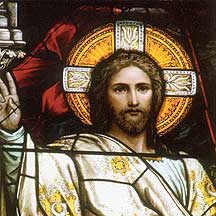







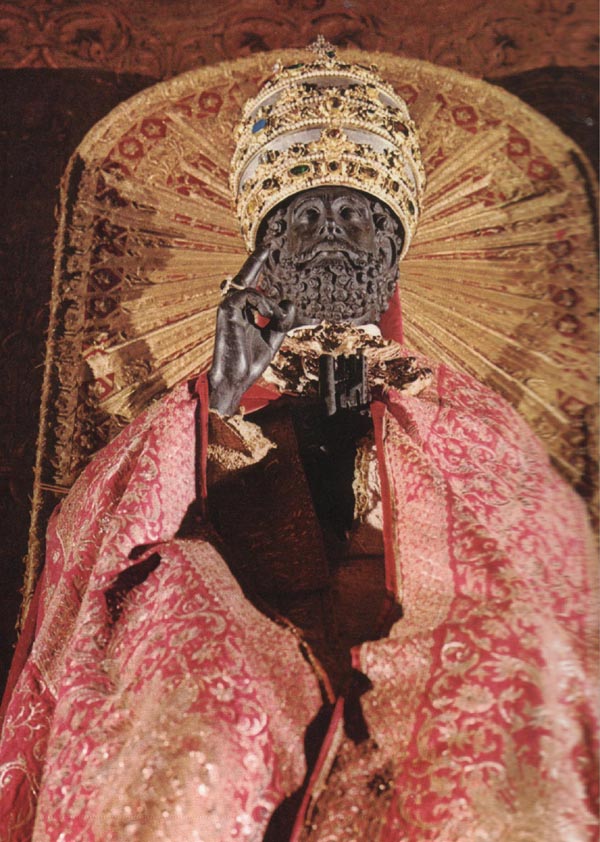
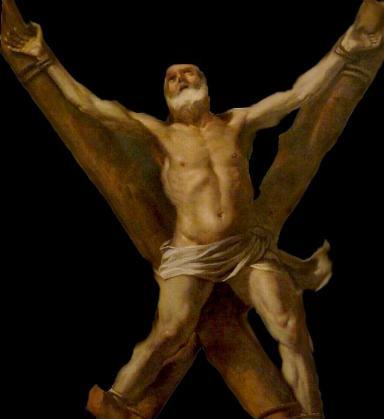




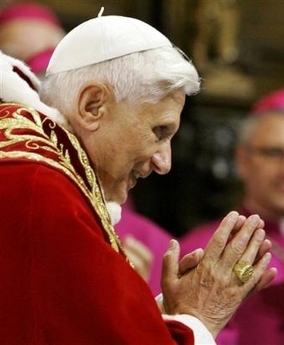






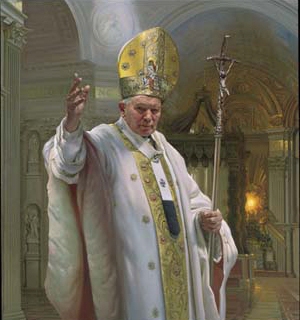
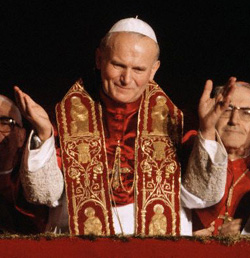
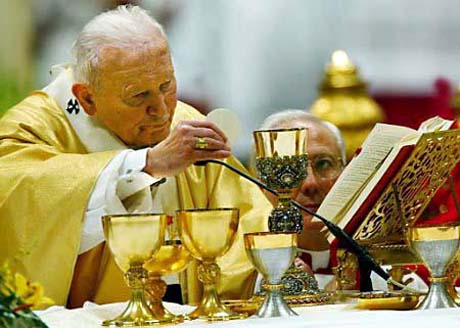







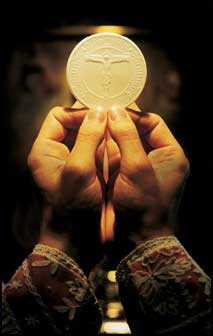
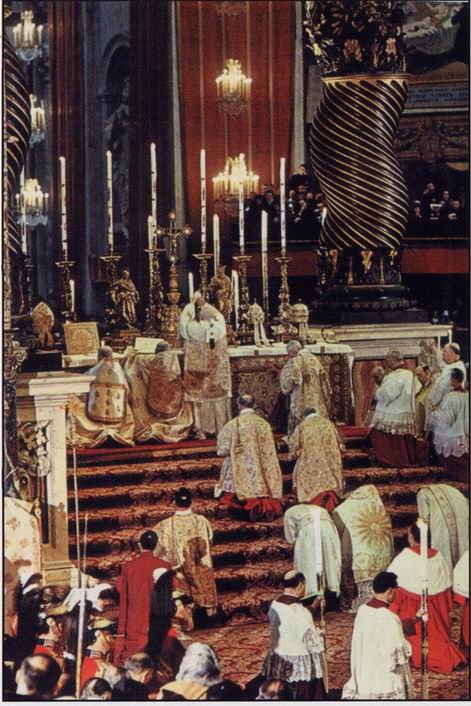

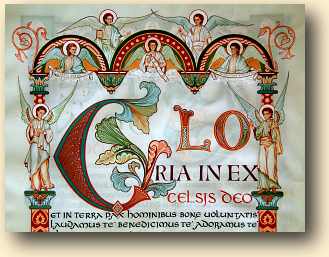

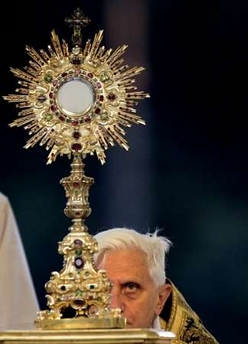


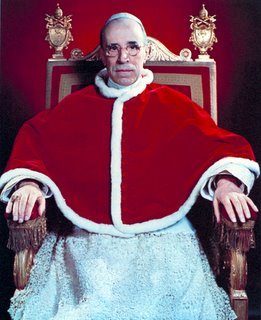




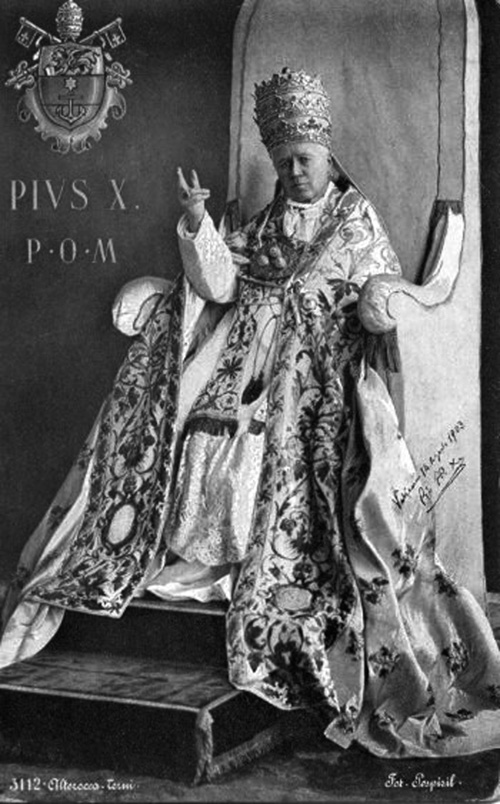



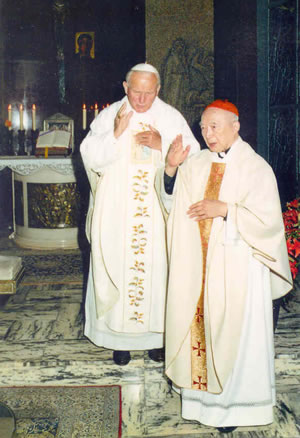





4 comments:
bravo! bravo! wonderful post, great post. A more logical post than ever. andrew, being sensible as always...
Just logic, pure logic. I might have a bit mean and uncharitable, now that I read it again. But sometimes, the Truth must be spoken regardless.
You know, the Truth will set you free and all that.
I was told some Anglican clergy get their orders from Old Catholic bishops due to THEIR own doubt about Anglican ordination, thanks to Pope Leo XIII's judgement on that matter. Now if Anglicans themselves doubt their orders, what more do I need to say?
You are right. After Apostolicae Curae came out, some Anglicans get their orders validated by Bishops of the Old Catholic Union of Utrecht who act as co-consecrators and lay hands on them. Some also have some Orthodox bishops present.
These folks then, have valid orders but the lines have been blurred somewhat. Then, there's also the question of episcopi vagantes or flying bishops whose lines keep expanding. The Thuc line of bishops is an example of this.
But commemoration in the Canon is restricted to one's ordinary alone or a prelate of equal jurisdictional rank.
The 1972 Decree of the Sacred Congregation for Divine Worship, Cum de nomine, can be helpful in this regard. The Decree notes that the following persons must be named in the Eucharistic prayer:
1. the Bishop of the diocese;
2. the Bishop still retaining administration of one diocese after being transferred to another see;
3. an apostolic administrator – whether the see is vacant or not – with either a temporary or permanent appointment, who is a Bishop and actually is fully exercising his office, especially in spiritual matters;
4. a vicar and prefect apostolic;
5. a prelate and an abbot nullius[Andrew: Territorial Abbot, very rare these days] having jurisdiction over a territory not attached to any diocese.”
The Decree also notes that "it is permitted to name in the Eucharistic Prayer coadjutor and auxiliary Bishops who assist the Bishop of the diocese in ruling it and others, as long as they have received the episcopal character. If there are many such they are remembered collectively, without mention of their names, after the name of the proper Ordinary..."
Post a Comment